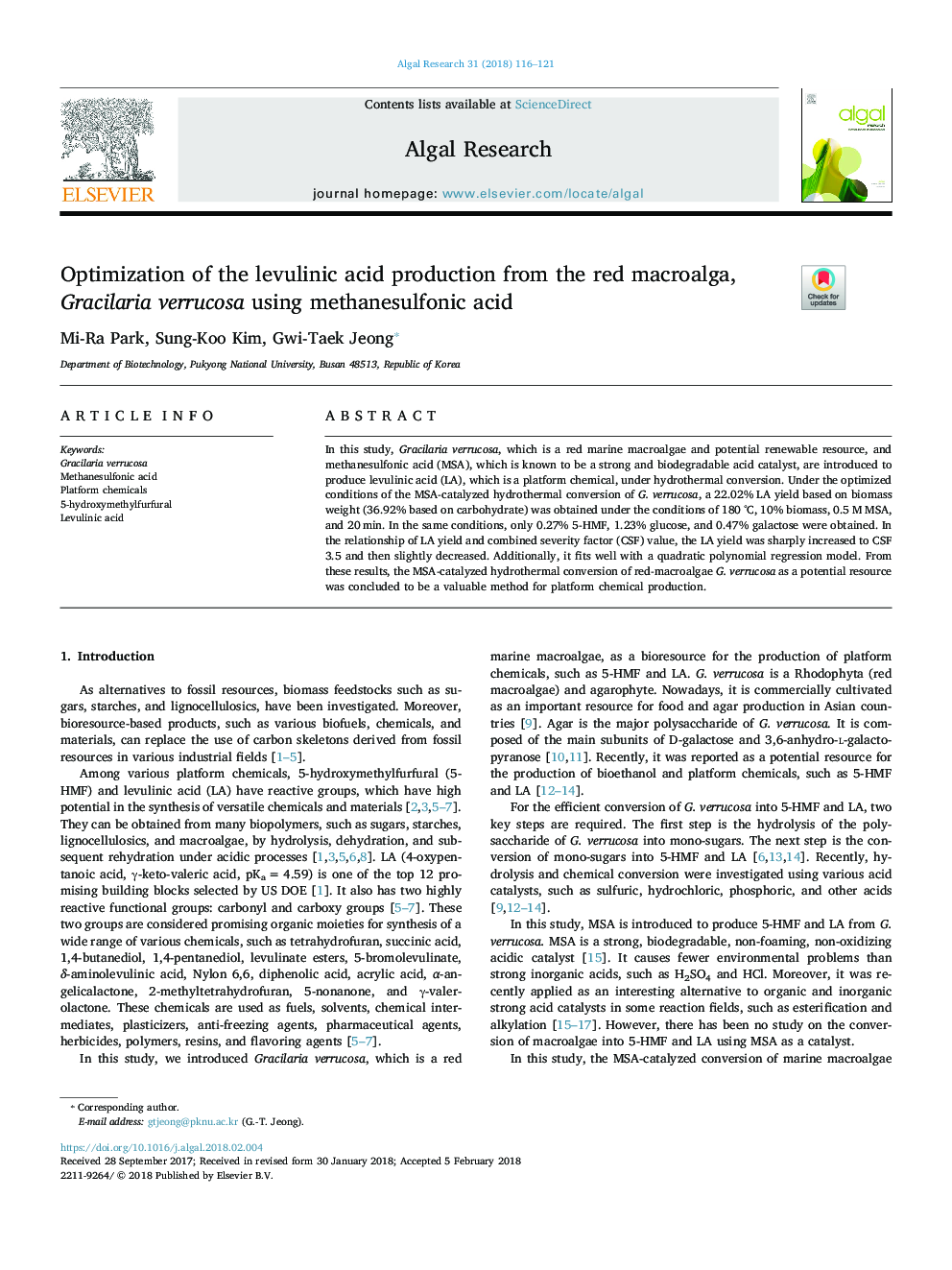| Article ID | Journal | Published Year | Pages | File Type |
|---|---|---|---|---|
| 8086157 | Algal Research | 2018 | 6 Pages |
Abstract
In this study, Gracilaria verrucosa, which is a red marine macroalgae and potential renewable resource, and methanesulfonic acid (MSA), which is known to be a strong and biodegradable acid catalyst, are introduced to produce levulinic acid (LA), which is a platform chemical, under hydrothermal conversion. Under the optimized conditions of the MSA-catalyzed hydrothermal conversion of G. verrucosa, a 22.02% LA yield based on biomass weight (36.92% based on carbohydrate) was obtained under the conditions of 180â¯Â°C, 10% biomass, 0.5â¯M MSA, and 20â¯min. In the same conditions, only 0.27% 5-HMF, 1.23% glucose, and 0.47% galactose were obtained. In the relationship of LA yield and combined severity factor (CSF) value, the LA yield was sharply increased to CSF 3.5 and then slightly decreased. Additionally, it fits well with a quadratic polynomial regression model. From these results, the MSA-catalyzed hydrothermal conversion of red-macroalgae G. verrucosa as a potential resource was concluded to be a valuable method for platform chemical production.
Keywords
Related Topics
Physical Sciences and Engineering
Energy
Renewable Energy, Sustainability and the Environment
Authors
Mi-Ra Park, Sung-Koo Kim, Gwi-Taek Jeong,
